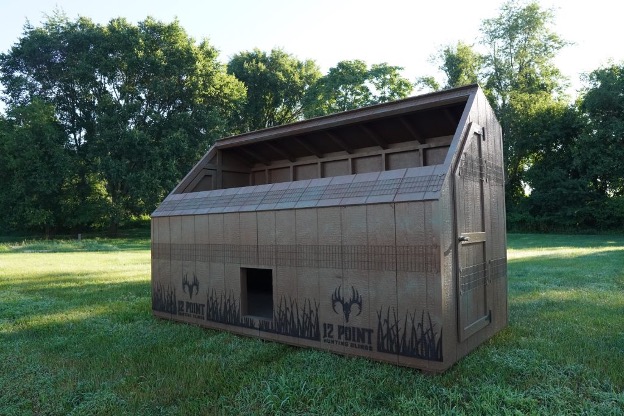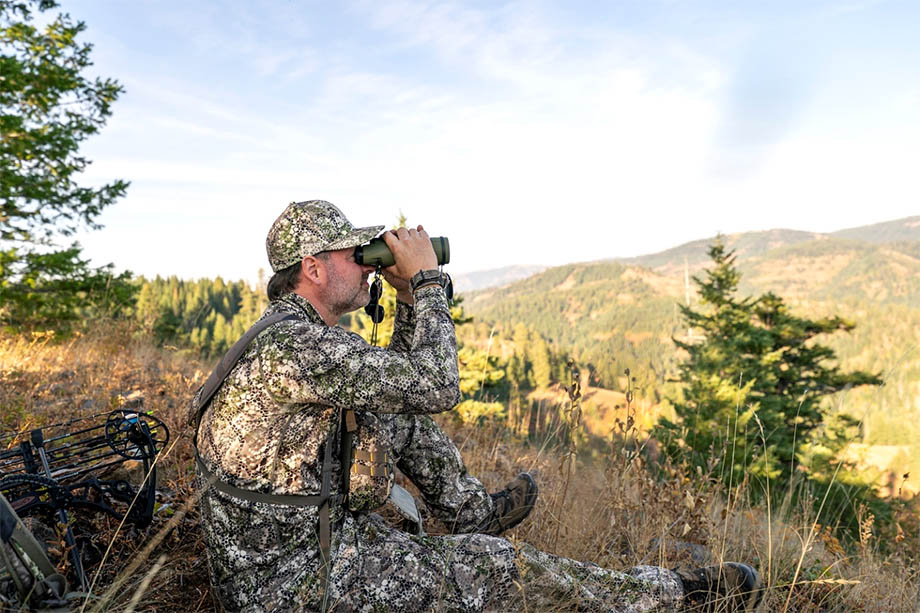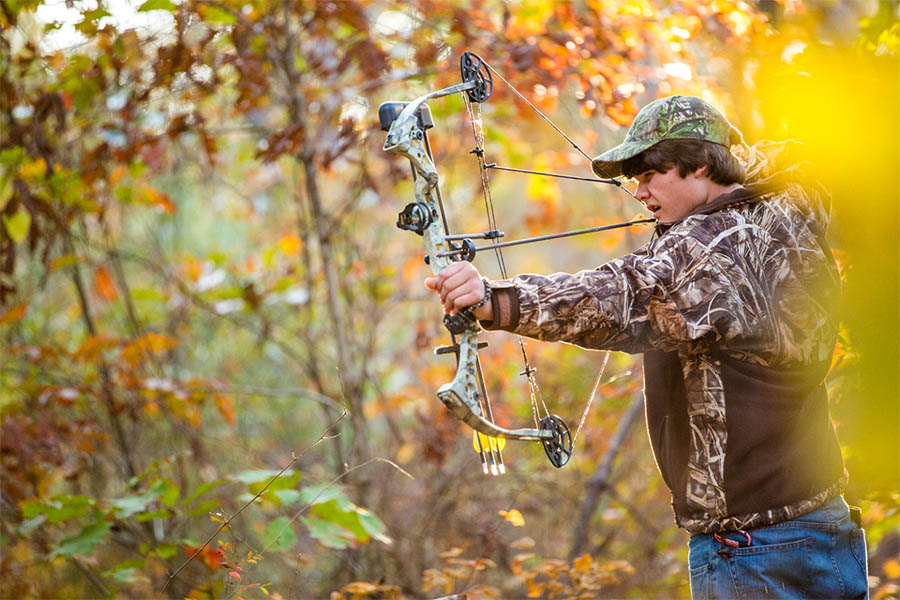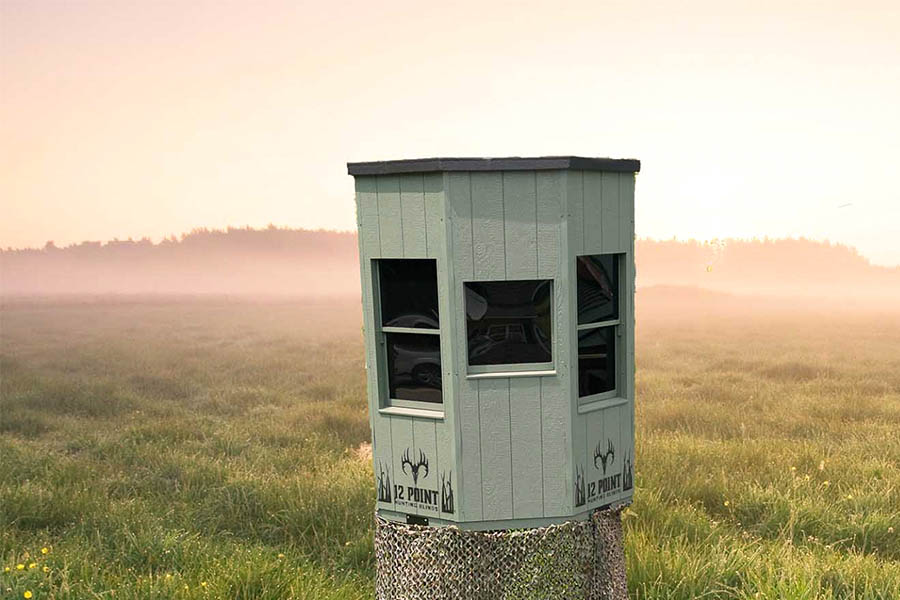Fido in the Blind: Tips for Managing a Hunting Dog in the Blind
For many bird hunters, a dog is an irreplaceable and necessary tool that is just as important as their gun, boots, or blind. A well-trained dog can find, flush, and retrieve game, coexisting in a partnership with hunters that has existed for millennia. At its core, this relationship is a win-win, with the dog providing the human with food and the human, in turn, providing shelter and protection, along with food for the dog.
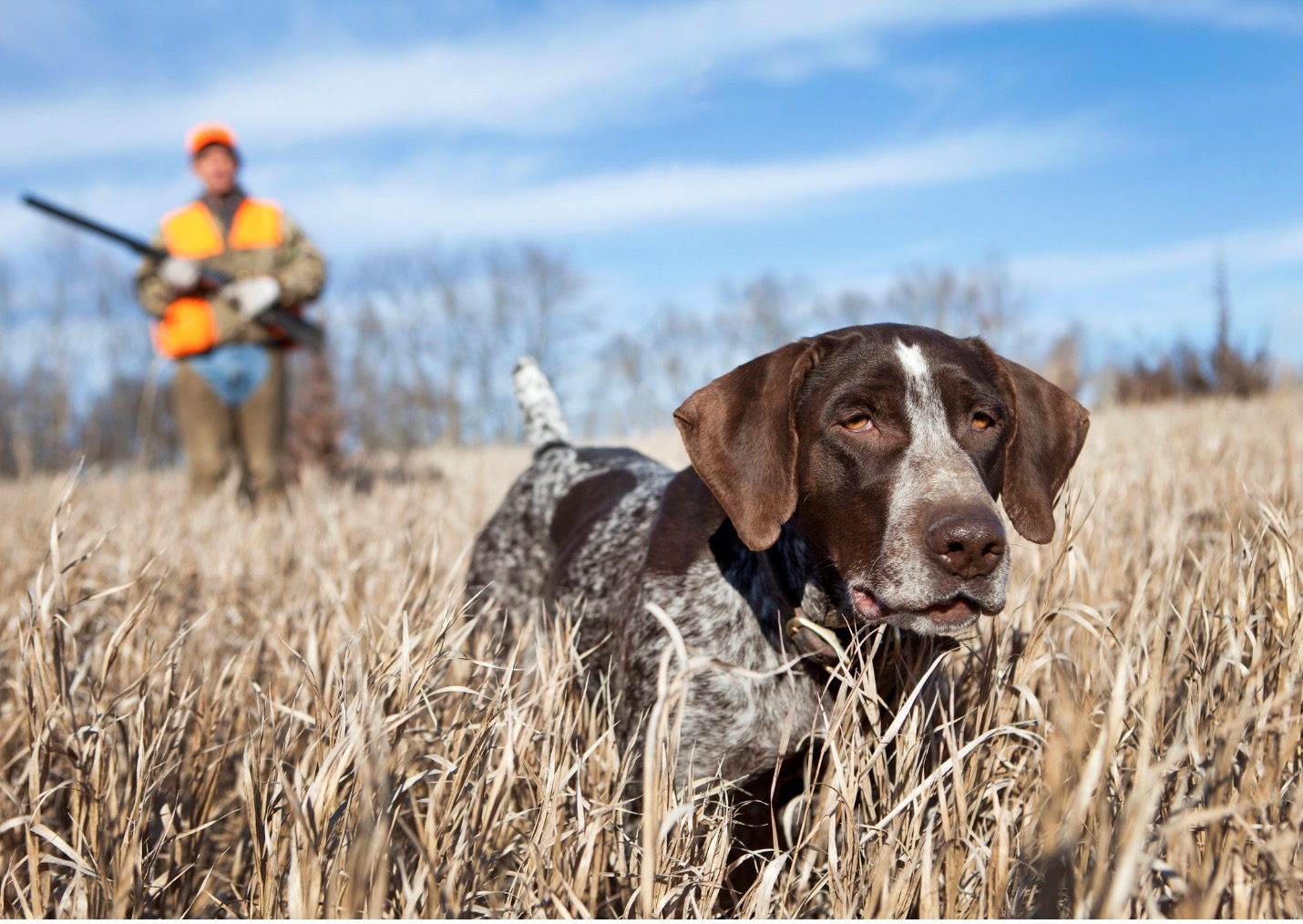
Although having a dog is extremely beneficial, and even required for a successful hunt in some circumstances, it is not as simple as buying a pup and letting them run out on a hunt. While many breeds such as retrievers, pointers, hounds, and spaniels are predisposed to hunting, they are not born with the ability to hunt with a human companion. This is why a great hunting dog is more than a tool, they are a companion and the training for hunting is ongoing. Find useful bird hunting dog training tips below.
Benefits of Having a Hunting Dog
The benefits of having a hunting dog are many, especially when hunting any type of bird. Some of the benefits of using a well-trained hunting dog are:
- Cover more ground – for hunts that occur over large swaths of land, such as hunting for pheasant, grouse, or other upland birds, a dog is essential to covering more ground in less time. For example, pheasant hunting without a dog typically involves one hunter walking through a field in an “S” shaped curve, kicking at bushes in an attempt to flush out birds. With a dog, the hunter can just walk along leisurely while the dog works the field, getting into every nook and cranny and flushing more birds.
- Find more game – humans are limited when it comes to finding game using our noses, but dogs are not. A dog can smell between 10,000 and 100,000 times better than humans, meaning they can smell game and locate it easily, without needing to stomp around and make a racket.
- Retrieve more game – bird hunting without a dog can be a frustrating sport. Sometimes you hit a bird, but not well enough to drop it immediately, or the bird lands in a lake, or the bird lands in thick brush. All of the scenarios lead to losing birds. Having a dog greatly reduces the loss of downed birds and eliminates the need for boats when hunting on a lake.
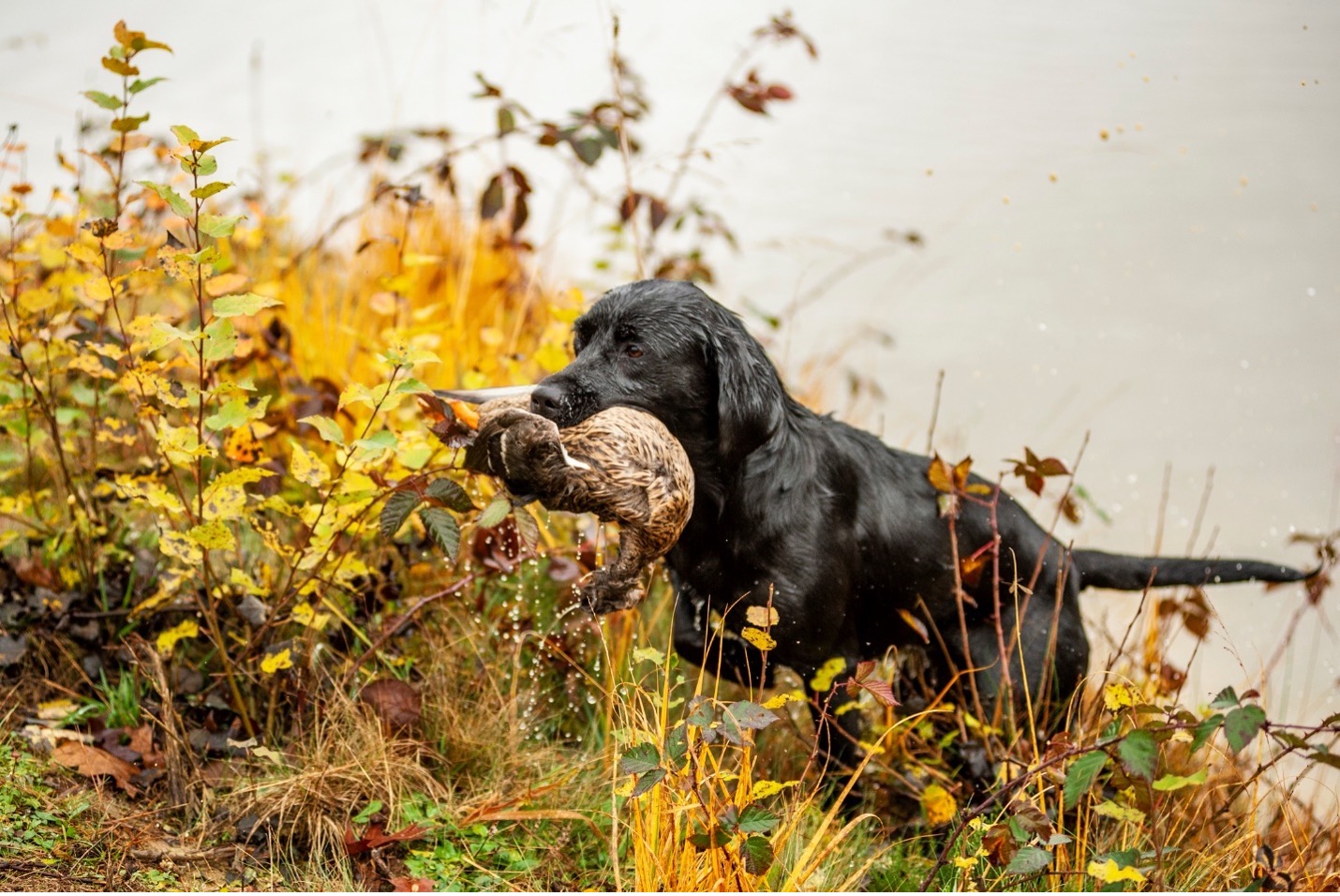
- Better water hunts – generally speaking, it is tough to hunt on deep lakes or ponds without a dog. Doing so requires a boat or some other method of retrieving downed birds as there is a high likelihood that the bird will fly into the water. Having a dog in this situation is helpful because they can swim out and get the bird for you, which means more time in the blind and less time in the water.
Challenges to Having a Hunting Dog
Although there are many benefits to having a hunting dog, many challenges come with using man’s best friend to hunt. These include:
- Training – How useful a hunting dog is comes down to training. Training is an arduous task that continues throughout the dog’s life. A well-trained dog is an asset, but a poorly trained dog is a liability and can ruin game, lose game, and cause the hunter to waste time.
- Unpredictability – a well-trained hunting dog is predictable, but even the most obedient dog still can be unpredictable at times. If an animal, like a coyote, runs through your spread it can create a challenging and dangerous situation.
- Overall Care – unlike other gear that a hunter carries, dogs require constant care and attention to ensure that they are happy and safe. Hunting can be demanding, temperatures can be extraordinarily hot or cold and dogs cannot regulate their temperature as readily as we can in these environments. As an owner, it is your responsibility to ensure that your dog is safe and healthy while hunting.
- Overall Cost – owning a hunting dog that will find, flush, and retrieve game is not always affordable. Many owners leave the training up to experts, shelling out thousands of dollars to get their dogs ready for bird season. Even for dogs that are trained by the owner, there are additional costs of food, shelter, and health care that can add up quickly.

Blind Management for Hunting Dogs
For hunting waterfowl, having a dog is critical. This means that your dog will also need to be well suited and trained to hunt in a blind. Hunting in a blind is a bit different from hunting upland birds in that the dog must be able to sit still in the blind for long periods without barking, whining, or running around outside of the blind and scaring away all of the birds.
For dogs that will be hunting in a blind, blind management starts right from puppyhood, as early as 6 weeks. There are many different strategies when it comes to training your dog to sit calmly in a blind before it is time to retrieve, however, the basics of this training consist of teaching your dog to sit in the blind without leaving, then adding in longer durations of time before finally adding in distractions. The ultimate bird hunting dog training goal is for them to leave the hunting blind only when commanded to do so.
While some blinds are suitable for fitting Fido in cozily, there are separate dog blinds that are made specifically to go alongside or within your hunting blind. These dog blinds can do a couple of things for you. One, they can reduce the distraction of movement within the blind. Inevitably, you or your hunting buddy will shuffle around the blind to adjust and stay warm, by having your dog in a dog-specific blind they can just relax and not worry about these movements. Second, these hunting blinds can keep your dog warmer in the frigid cold. Many dog blinds are elevated and enclosed with warm material, this means your dog will stay warmer, drier, and out of the elements while waiting for their turn to shine.
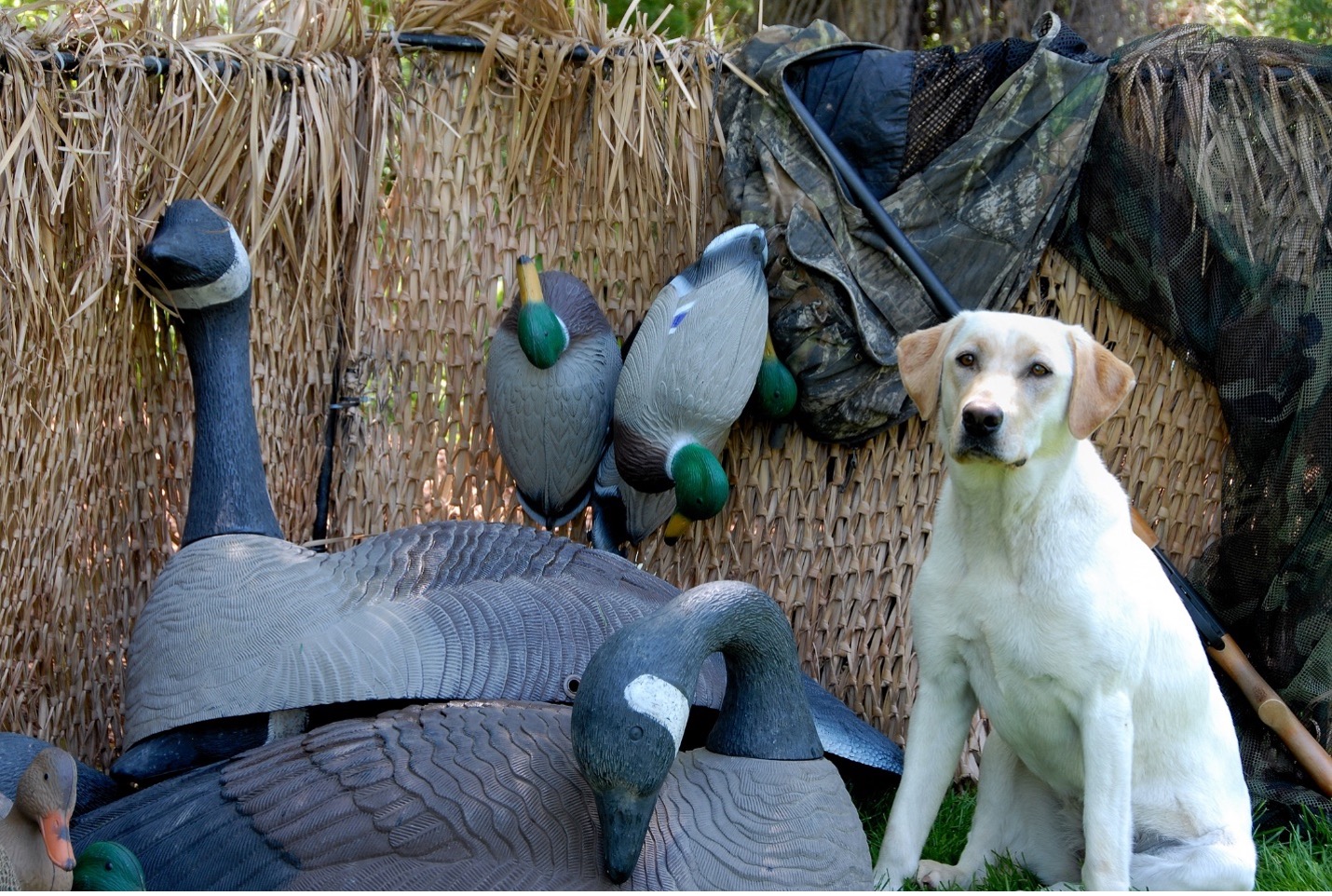
General Tips for Using Hunting Dogs
There is a lot to remember when you’re training a dog for hunting and there is a ton of information available on the internet for folks just starting out. Here are some general tips and reminders for hunters using dogs to bring in game.
- Keep a first aid kit – keeping a dog-specific first aid kit on hand with wound care capabilities, snakebite treatment, and other necessities will help to keep your dog healthy while hunting. When a dog is running after a bird or searching a deep thicket you never know what it will get into, this, combined with the fact that you are typically far away from veterinary services while hunting, means that it is on the owner to provide emergency care. Having a first aid kit and knowing how to use it can be the difference between life and death for your dog.
- Train with gunshots – sitting still under gunfire is not something that animals do naturally. Taking your dog out to the range or finding time to fire some blanks to see how they will react is a great way to introduce your dog to the sounds of hunting. It is also an important safety consideration because you do not want your dog to jump up at the sound of a gunshot. After all, when hunting birds there can be more than one gun firing at a time.
- Food, water, and rest – hunting dogs work harder than we do during a hunt. As such, they require more in the way of food, water, and rest. Knowing how to read your dog’s needs and hunger queues is important and will lead to a better hunt for you and your dog.
- Training, training, and more training – this is really what it is all about, the best-hunting dogs get great training and opportunities to practice and train regularly. As a hunter, your job doesn’t begin and end with the hunt, look for opportunities to train on daily walks, around the house, and on longer outings. The reality is that most behaviors need to be reinforced, from kennel training for the care ride to retrieving a bird 50 yards out on a lake, it all needs to be practiced.

Wrapping Up
Having a dog as a companion is one of the true joys of hunting, it is rewarding and fun, and the partnership between man and dog is something special. However, dogs were not born to hunt using our hunting methods or to sit still in the blind. This is why it is important to think about obstacles such as training, care, and cost and weigh them against the benefits of owning a hunting dog before making your final decision.
For hunters willing to put the time and energy into training their dogs, they will have a friend and hunting companion for years to come. While there are no guarantees in hunting, having a well-trained dog opens up new hunting areas, helps to find, flush, and retrieve game, and can create a more exhilarating hunting experience.
‘Quack Shack’ Duck Blind – Learn More HERE